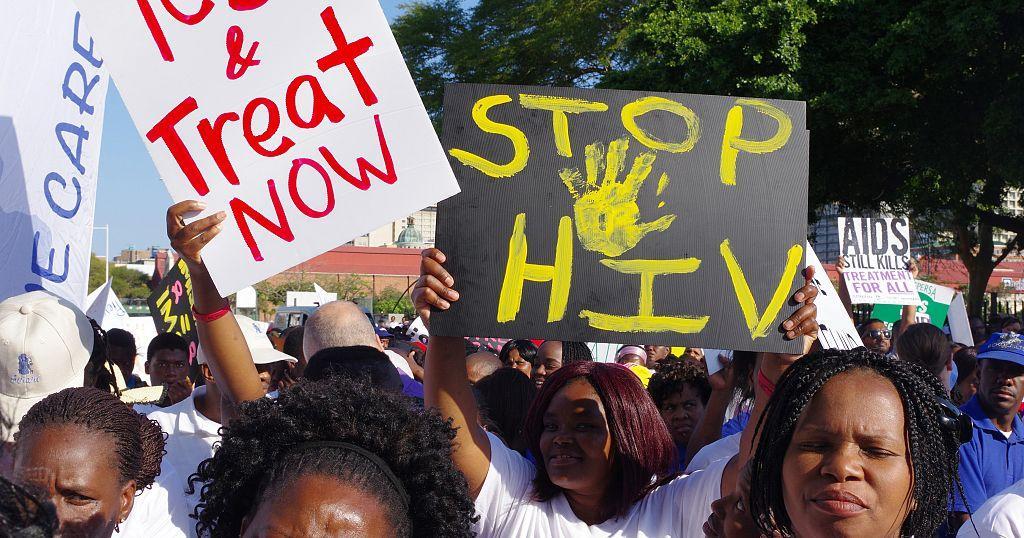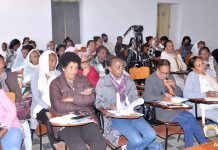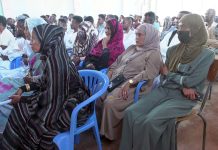Africa-Press – Eritrea. Twice-yearly shots used to treat AIDS were 100% effective in preventing new infections in women. The drug company says it is waiting for results of testing in men before seeking permission to use it to protect against infection.
The results in women were published Wednesday (Jul. 24) in the New England Journal of Medicine.
The study was conducted on about 5,000 young women and girls in South Africa and Uganda.
The prospect of a twice-a-year shot is “quite revolutionary news” for our patients, said Thandeka Nkosi, who helped run the Gilead research at the Desmond Tutu Health Foundation in Masiphumelele, South Africa.
“With the twice yearly injectable, we see, we know that participants will be quite excited about, just purely because the injectable versus the the pill”, she says.
“We’ve seen how adherence is not always the greatest when it comes to the pill, purely because of different reasons, time, the ability to go and pet and fetch those pills from the clinics. And so with the injectable and twice yearly this gives a participant more choice.”
HIV is a virus that attacks the body’s immune system. AIDS occurs at the most advanced stage of infection.
The shots made by U.S. drugmaker Gilead are notably approved in the U.S., and Europe, but only as a treatment for HIV. They are known as lenacapavir and sold as Sunlenca.
While there are other ways to prevent HIV infection, like condoms or pills, consistent use has been a problem.
In the new study, only about 30% of participants given Gilead’s Truvada or Descovy prevention pills actually took them — and that figure dropped over time.
Accessible for those who need it
Globally, HIV infects about 1.3 million people every year and kills more than 600,000, mainly in Africa.
Experts are excited about the shots but are concerned Gilead hasn’t yet agreed on an affordable price for those who need them the most.
The company said it would pursue a “voluntary licensing program,” suggesting that only a select number of generic producers would be allowed to make them.
U.N. AIDS agency urged Gilead to share Sunlenca’s patent with a U.N.-backed program that negotiates broad contracts allowing generic drugmakers to make cheap versions of drugs for poorer countries worldwide. As an HIV treatment, the drug costs more than $40,000 a year in the U.S., although what individuals pay varies.
In a statement last month, Gilead said it was too early to say how much Sunlenca would cost for prevention in poorer countries. Dr. Jared Baeten, Gilead’s senior vice president of clinical development, said the company was already talking to generics manufacturers and understood how “deeply important it is that we move at speed.”
Another HIV prevention shot, Apretude, which is given every two months, is approved in some countries, including in Africa. It sells for about $180 per patient per year, which is still too pricey for most developing countries.
According to UNAIDS, 46% of new HIV infections globally in 2022 were in women and girls, who were three times more likely to get HIV than males in Africa.
When AIDS drugs that could turn HIV infection from a death sentence into a chronic illness were discovered. Back then, South African President Nelson Mandela suspended patents to allow wider access to the drugs; the price later dropped from about $10,000 per patient per year to about $50.
In other research presented at the AIDS conference, Andrew Hill of the University of Liverpool and colleagues estimated that once production of Sunlenca is expanded to treat 10 million people, the price should fall to about $40 per treatment.
Source: Africanews
For More News And Analysis About Eritrea Follow Africa-Press







